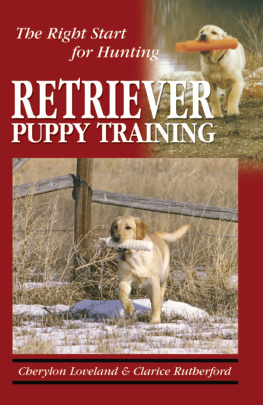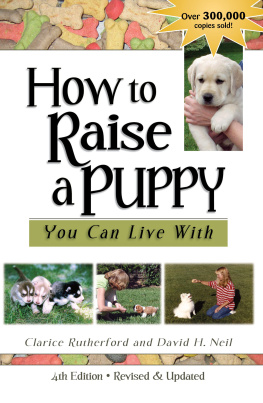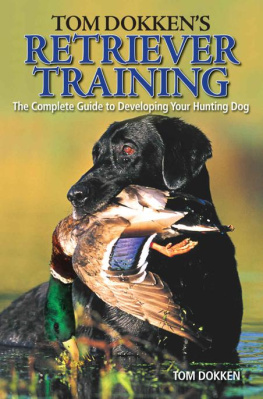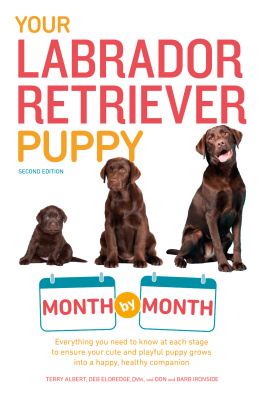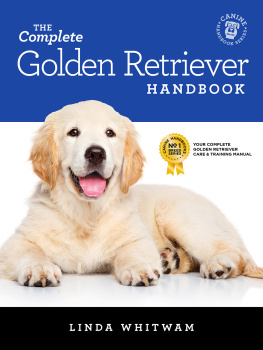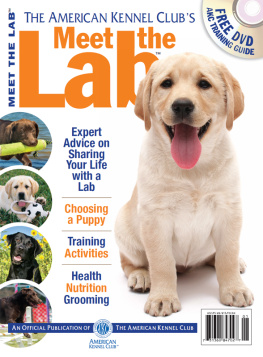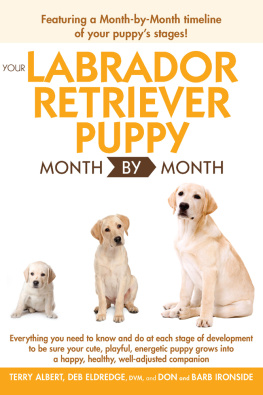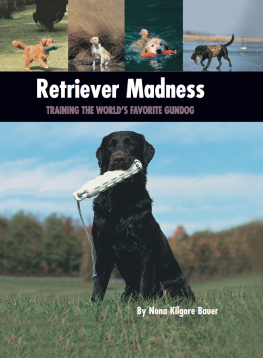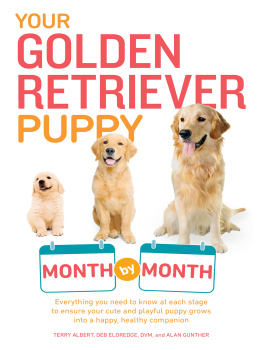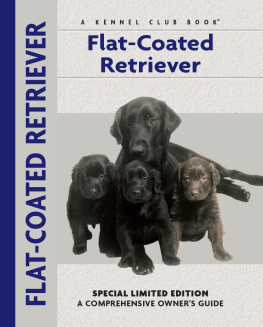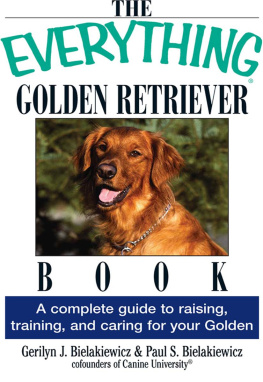Gervase Markham, in his 1621 essay on training duck dogs stated his opinion on training obedience at a young age. He wrote, If [retrievers] be well-handled at the first, they will ever smell of that discretion, and if they be ill-handled they will ever stink of that folly.
From Ducks Unlimited, January/February 2007
Retriever Puppy Training: The Right Start for Hunting
Copyright 2010 by Cherylon Loveland and Clarice Rutherford
All rights reserved. No part of this book may be used or reproduced in any manner whatsoever, including electronic media, internet, or newsletters, without written permission except in the case of brief quotations embodied in critical reviews.
The information contained in this book is complete and accurate to the best of our knowledge. All recommendations are made without guarantee on the part of the author or Alpine Publications, Inc. The author and publisher disclaim any liability with the use of this information.
For the sake of simplicity, the terms he or she are sometimes used to identify an animal or person. These are used in the generic sense only. No discrimination of any kind is intended toward either sex.
Cover Design: Laura Newport
Cover Photo: Clarice Rutherford
Editing: Deana Walker
Layout: Laura Newport
Photographs: All photographs by the authors unless otherwise noted.
1 2 3 4 5 6 7 8 9 0
Printed in the United States of America.

Since its first printing in 1988, Retriever Puppy Training: The Right Start for Hunting has been a favorite with people starting out with their first retriever puppy or those who want to raise a hunting companion from puppy hood. Most of these dogs will lead a dual life as both family companion and working retriever. However, experienced retriever handlers and those planning to trial or hunt test with their dogs will also find it helpful.
Although the book is directed to owners of retriever puppies in their first year, the program is equally effective with young retrievers starting beyond that age. It gives your retriever the necessary disciplines and skills he will need if he is to become your reliable hunting companion. Throughout the program, lessons that every companion dog needs to learn to be an enjoyable canine citizen are also stressed. We assume that most puppies will grow up as house pets and will live in a family situation and not a training kennel.
Puppies are not born knowing everything they will ever need to know. Many of the refinements required by their human leaders have to be learned, and some things are harder to learn than others. Each pup has his area of strengths as well as weaknesses. We believe that a good training program is one in which the pup and the handler can work through the weak areas of the pups abilities and achieve success.
Puppies (adult dogs, too) learn best in a step-by-step progression. If a handler works on obedience commands one week, decides to begin hand signals the next week, doesnt train at all for two weeks and then decides to steady the dog to birds, he will have a very confused retriever whose performance will progressively get worse instead of better.
Many puppy owners have the desire and the ability to do a good job of training their hunting dog, but they lack a step-by-step program to use as a guide. When your pup has completed this program hell be ready to go when you put your hand over his head and say Back. You will have worked out all the Yes but, Maybe, and I dont want to, excuses that all retrievers try to use. You will have a retriever that can go on to be successful in whatever field work you choosecompetitive or non-competitive. And, you will have a well-mannered companion.
Happy training!
Cherylon Loveland
Clarice Rutherford

Over the past thirty years, I (Cherylon) have learned from and with some very talented and knowledgeable people. This book would not have been possible without them.
Rex Carr provided me, and many other dog trainers, with a fundamental structure for training dogs. At the time, his ideas were revolutionary. Now, they are accepted as the building blocks for any training program. My best friend, the late Jackie Lauenroth, and I spent hours together working to incorporate Rexs ideas into our daily training schedule.
My appreciation also to Judy Aycock and Danny Farmer, both of whom helped me expand my understanding of the dogs and approach training from an even more heightened perspective. To all my competition clients who have kept me informed in detail as to the current testing trends, and to all the hunters who have kept in close touch, both of which have called me from the field to relate a bird just flushed and retrieved or a test that a dog has just completed.
Each day, I enter the field with my dogs with a sense of anticipation and wonder. I know how fortunate I am and how much the people I have mentioned have contributed to my passion for the dogs. To each of them, I owe great thanks.
Cherylon Loveland
Special thanks go to Sandy Whicker, Abigail Bridges, and Barbara Fleming, all of whom aided in making the first edition of this book a reality. To Bill Rutherford, for always lending a willing hand. To the staff of Alpine Publications for their continuing loyalty and support in the production of four successful titles over the years. And finally, to the many good friends in the retriever world who have helped us grow and learn and made it all worthwhile.
Clarice Rutherford


The day your new retriever comes home is a great day! That bundle of energy has the potential for a great partnership for many years ahead. Therefore, it pays to spend some effort in locating litters and in selecting your puppy. If you havent yet decided on a specific retriever breed, read as much as you can about the history as well as the current trends of each breed. Talk to different owners and breeders. Then decide which one seems right for you. Two excellent sources of breeders and litters currently available are Retriever Field Trial News and the Gun Dog magazine. You can also go to the American Kennel Club web site, www.AKC.com, to connect with names of retriever club secretaries in your area who can refer you to local breeders.
Good breeders are conscientious and raise puppies with great care. Take the time to find the right one and to ask a few basic questions about the litter. Reliable breeders will not only answer your questions but will help you distinguish between responsible breeders and individuals who raise puppies only for the money, caring nothing about the quality of breeding stock or the needs of the puppies.
Ask plenty of questions. Are the parents from hunting dog, field trial, or show stock? Have the sire and dam been used as hunting or trial dogs? Have either the sire or dam been proven (had previous litters that are now performing well)? Your puppy will not be a carbon copy of either parent but will likely have some behavioral characteristics of each. If either the sire or dam is inferior, or lacking in retrieving desire and soundness, the puppies might be inferior. Retrieving ability and trainability are hereditary factors just like body type, coat, and type of head.

